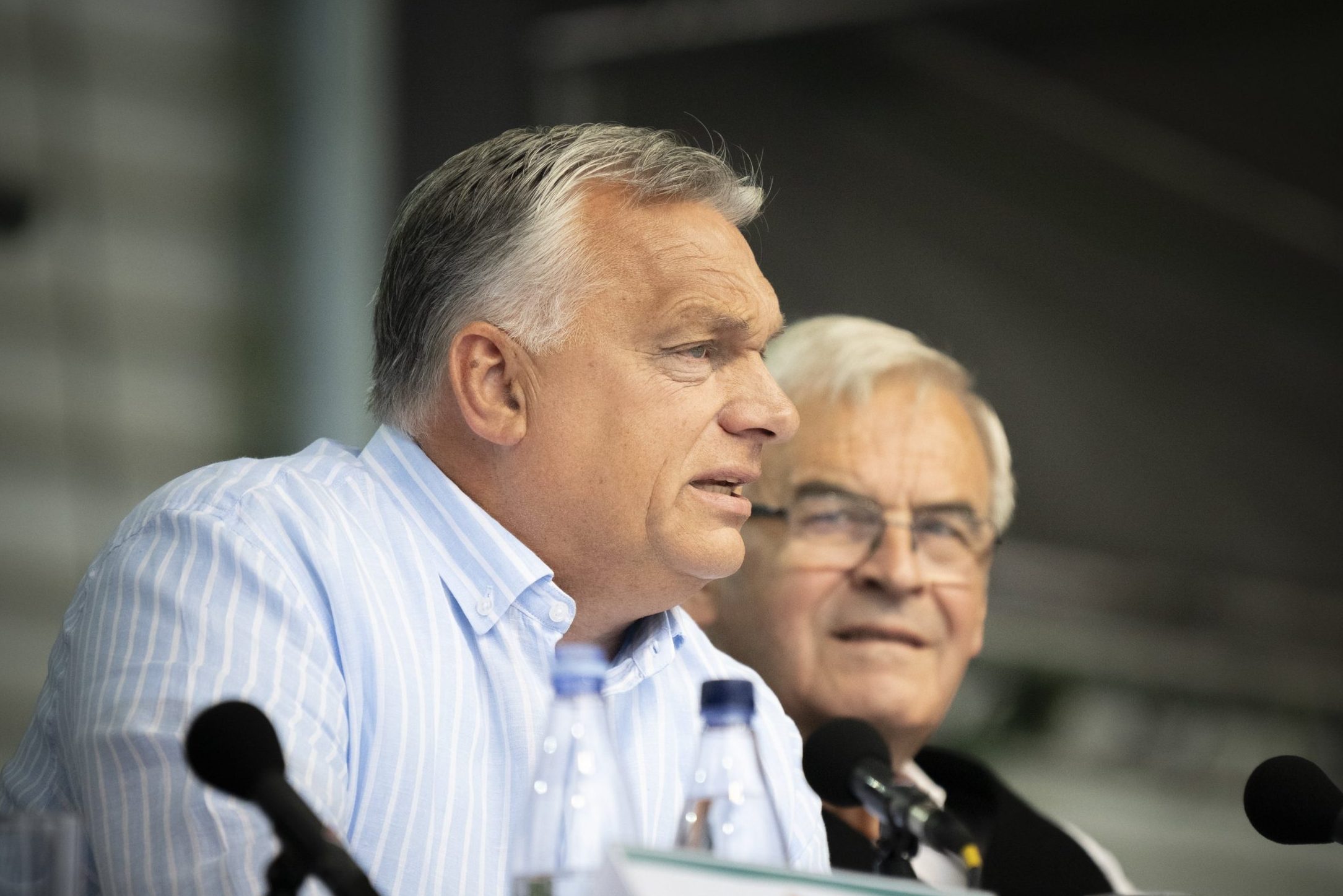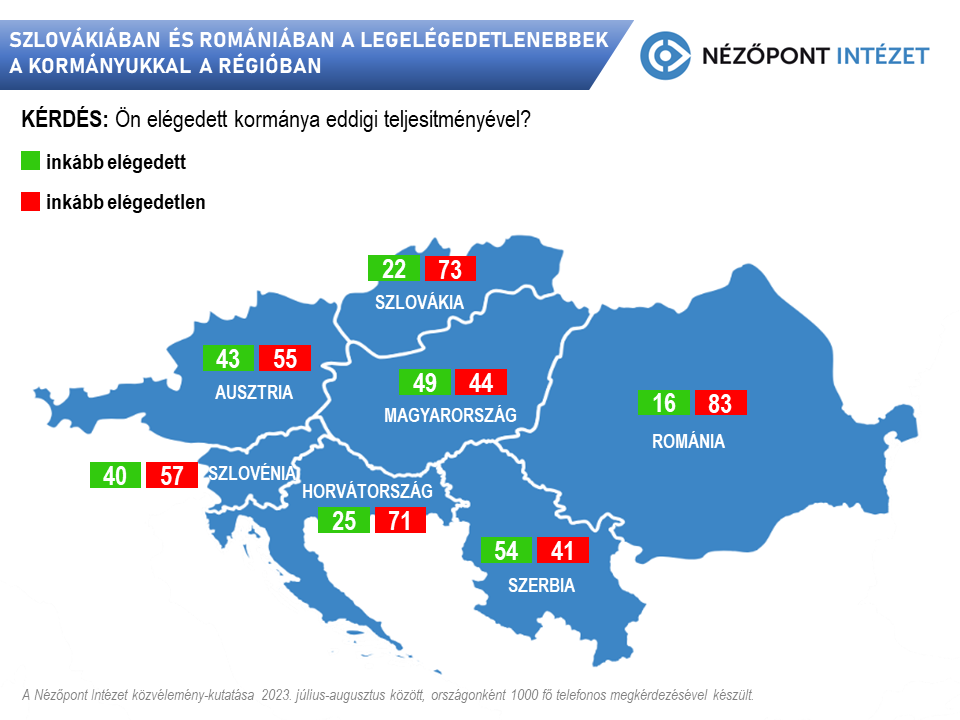
Among the opposition parties, the Democratic Coalition has the most support.Continue reading
People in Slovakia (73 percent) and Romania (83 percent) are the most dissatisfied with the work of their own government, while in Serbia and Hungary, citizens rate the performance of the country’s leadership the highest, according to a poll by Nézőpont Institute conducted in Hungary and neighboring countries.
In Slovakia, which is in the midst of a government crisis and facing early elections, there is a mood of government change, with 7 out of 10 people expressing dissatisfaction with the performance of their country’s leadership and only 22 percent saying they are satisfied. The stakes in the September 30 elections, beyond a change of government, are therefore whether the Hungarian party in Slovakia, Alliance, will be able to enter the parliament and possibly become a significant factor.
In Romania, the situation is even worse, according to Nézőpont Institute. Only 16 percent of those polled were positive about the functioning of the cabinet, while 83 percent expressed rather more dissatisfaction. However, in a semi-presidential system, where the president is an active part of the executive, the government is not traditionally considered to be the most stable institution.

Poll results in the region, with the green color showing the proportion of those satisfied with their governments. Photo: Nézőpont Institute.
Negative trends can also be observed in three other neighboring countries. In Croatia, 71 percent of the citizens are dissatisfied with their government, while in Slovenia, this proportion is 57 percent. Even in Austria, 55 percent said they are not satisfied with the country’s leadership.
Only two countries, Serbia and Hungary, buck the negative trends in the region, as both countries have a majority of those who are positive about the government’s performance.
In our southern neighbor, there is an absolute majority (54 percent compared to 41 percent) of people who are satisfied with the cabinet, while in Hungary there is a relative majority (49 percent compared to 44 percent). As a result, these are the only two countries in the region where people have a positive view of their elected leaders.
Featured photo via Facebook/Simion Hancescu